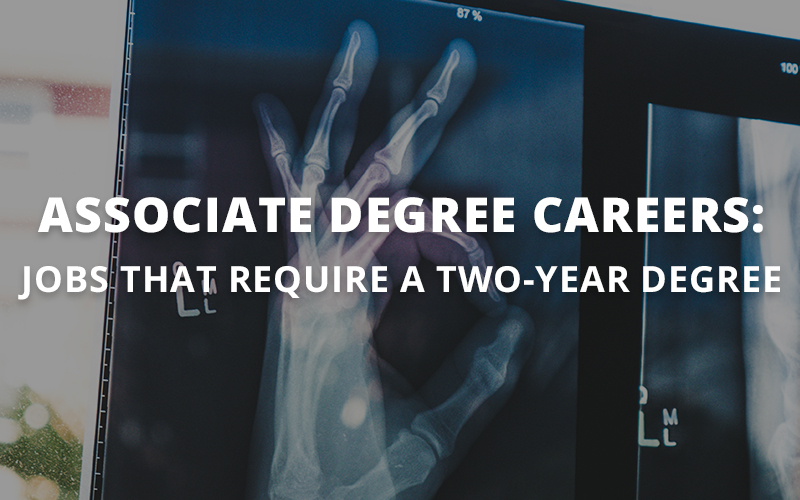Financial Aid
Easy Steps On How to become a Cardiologist in Less Time
The field of cardiology, dedicated to the study and treatment of heart-related diseases, holds a crucial place in the realm of medical sciences.
As medical advancements continue to push the boundaries of healthcare, the demand for skilled cardiologists remains ever-present.
Becoming a cardiologist is a challenging yet immensely rewarding journey, typically requiring years of education, training, and practical experience.
However, for those aspiring to embark on this path with a sense of urgency, there are strategies and steps that can help expedite the process without compromising the quality of education and expertise.
In this article, we will explore easy steps to becoming a cardiologist in less time, enabling ambitious individuals to enter this specialized field and make a meaningful impact on patients’ lives sooner than anticipated.
Who is a Cardiologist?
A cardiologist is a doctor who specializes in disorders of the heart and blood arteries.
Because of their sensitivity, you are essentially trained to consult and treat all cardiac diseases.
These experts first attend medical school before continuing their education in cardiology.
Generally, the cardiology program lasts at least three years.
Cardiologists examine your medical history, perform blood tests, and perform physical examinations.
Following that, they will review your results and provide solutions to any medical issues.
Therapy approaches typically include improved activity and eating habits.
Must Read: Complete Guide on How To Become a Certified Health Coach
Types of Cardiology
Although stroke medicine is a cardiology subspecialty, few cardiologists choose it as their specialty.
Instead, most cardiologists opt to specialize in areas of specific interest, such as:
- adult congenital heart disease
- cardiac imaging
- electrical device therapy
- electrophysiology
Interventional cardiology for heart failure (including heart transplantation and support devices).
Conversely, if you’re more interested in the science of cardiology, you might look into academic jobs in research.
What Qualifications Do I Need to Become a Cardiologist?
It is not true that becoming a cardiologist is a simple process.
To excel, on the other hand, requires intense concentration, dedication, and hard effort.
But, before you begin your journey to study cardiology, you must first complete a few prerequisites.
And while these requirements differ by school, some remain constant.
As a result, the qualifications are as follows:
- A CGPA of at least 3.5 is required.
- Outstanding success in subjects such as Chemistry, Biology, and Arithmetic.
- Have supporting documentation, such as a bachelor’s degree in medicine.
- In addition to these qualifications, you must meet the school’s other requirements.
Yet, meeting the standards is only the first step in realizing your dream.
How Much Do Cardiologists Earn?
Cardiologists are handsomely compensated.
As a result, the specificity and carefulness with which they performed their duties should only result in a commensurate financial incentive.
Cardiologists can earn up to $512,000 per year on average.
Furthermore, this income does not include any benefits or bonuses.
Because medical challenges continue to get more complex, study in this field is continuing.
Job Prospects
The job prognosis for all cardiologists is above average, with a 13% increase projected between 2016 and 2026.
Population growth and the aging of the US population are the two primary drivers of job growth.
Furthermore, technology advances that broaden diagnostic possibilities make it easier for more patients to access non-invasive and invasive cardiology treatments and services.
Trending: Complete guide on how to become healthy as an Anorexia
Do all Cardiologists Perform Surgery?
A cardiologist’s primary responsibility is to identify and treat heart diseases.
Cardiologists also do procedures on the heart’s arteries through groin puncture incisions, although they do not perform open surgery.
How to Become a Cardiologist
Now that you’ve decided to study cardiology, you’ll need to learn the specific standards you’ll need to meet.
Fundamentally, these stages will serve as guides to assist you understand how to begin and advance your career as a cardiologist.
As a result, they include;
Step 1: Gain a Bachelor’s Degree
A bachelor’s degree in a science or health-related subject is required for those interested in cardiology.
Generally, such a bachelor program must be completed in four years, though some may be longer.
After completing premedical courses such as chemistry, physics, and biology, you must study diligently.
The higher your GPA, the more likely you are to be admitted to medical school, as this is when you begin laying the groundwork.
Step 2: Apply to Medical Schools
Four years of hard work and study at the University will get you a chance in cardiology.
But, after graduating from university, you must complete four additional years of education, this time at medical school.
After a number of sessions, exams, and lectures, you will be transported to a hospital where you will be able to put your newly acquired abilities to use.
You will finally acquire your degree (Medical Doctor (M.D.) or Doctor of Osteopathic Medicine (D.O.) at the end of this process.
Finally, after you have evaluated them and, most importantly, met their entrance standards, you can choose the best institute to study at.
Step 3: Get Your Medical License
You don’t finish medical school and create your own hospital, nor do you manage an apprenticeship program and believe you’re qualified to practice cardiology.
No! That is not how it works.
Regulatory agencies ensure that unqualified individuals do not open these facilities and imperil human lives.
Following medical school, the next stage is to obtain a medical license. You must receive this license to practice medicine by passing the licensure exam.
The exam will, to a significant part, display your knowledge and skills and assess whether you are prepared for a future career in cardiology.
As a result, the results of the license examinations will define your next important move.
Step 4: Complete your Residency Program
This professional path becomes more appealing at this point.
As a result, anticipate things to get a little rougher.
You’ll need a space to practice under the rigorous supervision of your senior colleagues once you’ve obtained your license.
As a result, this apprenticeship program is known as residency.
As a postgraduate, your next three years will be spent completing your training with an internal medicine residency.
You must undergo numerous clinical rotations in several internal medical specialities such as cancer, pulmonary medicine, and others before specializing.
Meanwhile, over the course of three years, you will build your portfolio and collect letters of recommendation from various specialists in the area, which will eventually qualify you for a cardiology fellowship.
Step 5: Finish your Cardiology Fellowship.
You must have learned a lot about cardiology during your residency, and you may believe that’s all there is to it.
Unfortunately, it is only a final step that will finally make things easier for you.
As a result, you must undergo a cardiology fellowship, which typically takes two to three years to complete.
Throughout the fellowship, you will learn how to manage a wide range of cardiac problems, as well as how to perform procedures and conduct clinical research.
As a result, you will finally receive certification.
See Also: How To Become a Registered Nurse| The Easiest Step by Step Guide
How to Advance Your Cardiologist Career
It is critical to excel as a cardiologist because the field is expanding all the time.
As a result, you must obtain critical information to aid your career path.
Nothing can substitute for practice.
You must devote time to practicing and handling various cardiological cases.
Fundamentally, they will broaden your knowledge base because you will need to develop simpler and more effective treatment procedures.
Make it a point to visit the medical library and read literature that will help you advance your education.
In fact, smart reading fosters invention.
Medical conferences are common and widespread.
As a result, you should not miss such events.
Medical events are venues for the dissemination of medical changes and breakthroughs.
As a result, take your time to find those near you and attend.
Medicine is a career that develops with time.
As a result, you should never dismiss years of experience.
Create ties with professionals in your area and build rapport for this cause.
You obtain suggestions and answers to questions you don’t know how to ask through this approach.
Top Cardiology Programs
Many schools offer medical programs, but some stand out above the others.
These institutions have been recognized as the best for studying cardiology for this reason.
As a result, they include the following;
1. University of Pennsylvania (Perelman)
Tuition: $57,884 per year
Except for the President, no one has described our university better.
“Penn has a long and distinguished legacy of intellectual rigor and the pursuit of innovative knowledge,” she said in her statement.
That heritage continues now thanks to our faculty, students, and staff’s creativity, entrepreneurship, and participation.”
Moreover, Penn has triumphed as an institution with over 4,500 faculty members pursuing its various degrees.
The Perelman School of Medicine is widely considered as one of the world’s top medical schools.
As a result, if you actually want to become a cardiologist, this is the place to be.
To summarize, students of all races are welcome to apply to Perelman. Because you just need to apply in person at the school.
2. Mayo Clinic School of Medicine
Tuition: $55,500 per year
Mayo School of Medicine is well-known for its scientific research and continual medical innovation.
In essence, they have remained at the forefront of medical research.
This institution is still dedicated to gathering the brightest minds from all over the globe and training them to become medical giants in a variety of professions.
As a result, the vitality and work ethic displayed in the school’s culture attest to this.
Finally, with three campus sites and five schools, you’re in an excellent atmosphere to get trained as a cardiologist in 2023.
3. University of California-San Francisco
Tuition: $47,222 per year
The UC School of Medicine is distinguished by five Nobel laureates, 101 members of the National Academy of Medicine, 64 members of the American Academy of Arts and Sciences, and a slew of others.
For this reason, UC is regarded as one of the world’s finest medical schools.
While this may be accurate or debatable, the institution’s programs continue to promote great education.
To summarize, the UCSF School of Medicine collaborated with Mount Zion Hospital to create the UCSF Medical Center.
4. Stanford University
Tuition: $58,197 per year
Stanford Medical School is still dedicated to medical research and best practices.
Fundamentally, their long history of pioneering medical changes lends weight to their claims.
The institution is currently focusing on wearable technologies for surgeons to assist them make better surgical judgments. Wow!
5. New York University (Langone)
Tuition: $55,000 per year
New York University (Lagone) continues to improve and develop in the field of medicine.
This is evident in their health and research institutions, which promote healthcare administration and other scientific advancements.
As a result, this university is an excellent place to begin a career in a medical field such as cardiology.
6. Johns Hopkins University
Tuition: $53,400 per year
John Hopkins University has evolved from a man’s idea to a corporate culture. This has also expanded its significance and dominance.
Nowadays, they are highly known and regarded all over the world, including by the World Health Organization, as a leading health center capable of treating certain degrees of sickness.
Undoubtedly, the university has not been overlooked, as numerous alumni members have been acknowledged for medical breakthroughs.
Do you want to hear anything else? Most likely not.
JHU is an excellent site to acquire a medical degree.
7. Harvard University
Tuition: $63,400 per year
Harvard is often regarded as the top university in the world. Furthermore, these programs are taught by the brightest minds and supplement the most recent professional practices.
This institution has produced alumni who are pushing the medical field forward in new directions. They are also increasing their efforts to remain competitive.
In conclusion, Harvard continues to be the best place to study if you want to become a cardiologist in 2023.
Conclusion
Becoming a cardiologist in less time is an enticing prospect for those eager to enter the field and make a difference in patients’ lives as soon as possible.
This article has explored easy steps to expedite the journey towards becoming a cardiologist while emphasizing the significance of maintaining a strong foundation in medical education.
While it is crucial to be mindful of time constraints, it is equally important to prioritize acquiring comprehensive knowledge and practical experience.
The field of cardiology demands expertise, precision, and a deep understanding of the intricate workings of the cardiovascular system.
Rushing through the educational process without acquiring a solid foundation can compromise the quality of care provided to patients.
Click the button below to Gain Access to our Members’ Exclusive Group, before it fills up again.
Gain Access Now!
See what others are reading:
- SOAS University of London A.G. Leventis Post-Doctoral Fellowship
- Eccles PhD Scholarship in Medical Sciences at ANU
- Doctoral Scholarship for African Students at University of Pretoria














